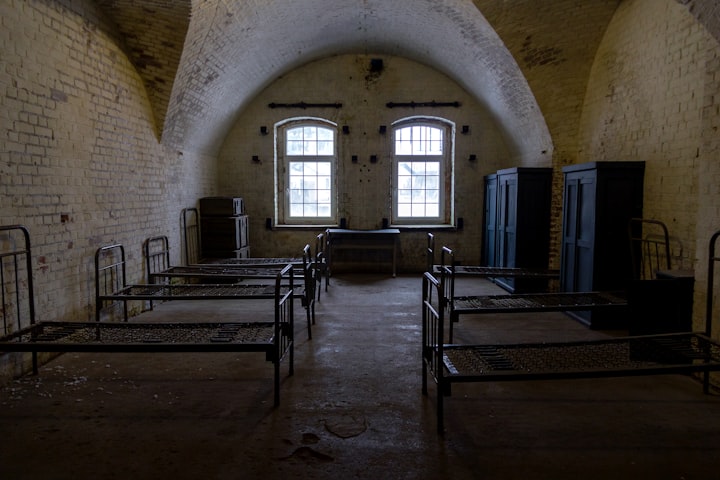
The Russian Sleep Experiment is a chilling tale that has captured the attention of millions on the internet. The story revolves around a group of Soviet scientists who, during World War II, allegedly conducted an experiment to test the effects of prolonged sleep deprivation on a group of prisoners. The gruesome results and horrifying consequences have been the subject of much debate and speculation. But is there any truth to this terrifying story?
In this article, we will delve deep into the origins of the Russian Sleep Experiment, analyze its validity, and explore the real-life effects of sleep deprivation.
The legend of the Russian Sleep experiment
According to the popular story, Soviet researchers believed they had created a stimulant that could keep soldiers awake for extended periods during World War II. To test the effectiveness of this stimulant, they designed a 15-day experiment using five prisoners of war. The prisoners were locked in a sealed chamber, provided with basic necessities, and continuously administered the stimulant gas to keep them awake. The researchers then closely monitored the test subjects, observing their behavior and physical condition.
The Experiment begins...
For the first three days, the prisoners appeared to be responding well to the stimulant, exhibiting no significant side effects. However, on the fourth day, their behavior took a dark turn. The prisoners began to speak of the horrors they had witnessed during the war and other traumatic incidents. By the fifth day, they had descended into psychosis, experiencing hallucinations, paranoia, and extreme aggression.
On the ninth day, two prisoners started screaming uncontrollably, their screams so loud that they nearly broke their vocal cords. Suddenly, the chamber fell silent. The researchers, fearing the worst, decided to open the chamber on the fifteenth day. They were met with a horrifying scene: one prisoner was dead, and the other four had mutilated themselves, tearing their own flesh from their bodies.
The aftermath
The surviving test subjects displayed extraordinary strength and aggression, fighting against their removal from the chamber with seemingly superhuman abilities. They had developed an intense desire to remain awake and a desperate need for the stimulant gas.
The researchers discovered that the subjects would die instantly if they fell asleep, and their brains showed signs of severe damage. In the end, the remaining prisoners were killed, and the experiment was covered up, never to be spoken of again.
The truth behind the experiment
Despite its widespread popularity and the countless debates surrounding its authenticity, the Russian Sleep Experiment is a work of fiction. The story first appeared on the internet in 2010, posted by a user named Orange Soda on a Wiki page. The author of the content remains unknown, and the gruesome images associated with the story are altered versions of random photos found online.
The Russian Sleep Experiment is a prime example of a "Creepypasta," a term used to describe horror stories that are shared and circulated on the internet.
The story's popularity can be attributed to the fascination with secret experiments conducted during the Soviet era and the horrifying nature of the tale itself. While it is true that the Soviet Union carried out secretive research during this time, the Russian Sleep Experiment was not one of them.
But now...let's talk about sleep deprivation.
The real effects
The Russian Sleep Experiment may be a work of fiction, but the concept of sleep deprivation and its consequences are very real. Sleep deprivation occurs when an individual does not get enough sleep, negatively affecting their physical and mental health.
There are two types of sleep deprivation:
Acute sleep deprivation
Acute sleep deprivation occurs when a person gets less than the normal amount of sleep or goes without sleep for a short period, typically lasting up to two days.
Chronic sleep deprivation
Chronic sleep deprivation occurs when a person consistently sleeps less than the average amount of time over an extended period, usually more than two days.
Stress and constant worries
Modern life is filled with stressors, from financial concerns to work-related pressures. During the day, we are bombarded with distractions from all directions, and it is not until we are alone at night that our anxious thoughts begin to race through our minds. Constant worries about past events and future expectations can make it difficult to fall asleep and stay asleep.
Your daytime activities and habits can significantly impact your night time sleep quality. Factors such as screen time before bed, excessive caffeine consumption, lack of physical exercise, and an unsuitable sleep environment can all contribute to sleep deprivation.
Effects of sleep deprivation
While occasional sleep loss may seem harmless, chronic sleep deprivation can have far-reaching consequences for your overall health and well-being. The effects of sleep deprivation include:
Mental Health Problems
Sleep deprivation can lead to moodiness, increased risk of depression, irritability, and difficulty managing emotions. Those suffering from anxiety and stress may struggle to cope with challenging situations when sleep-deprived. Chronic sleep deprivation can even cause delirium and hallucinations.
Impaired Brain Functioning
Long-term sleep deprivation can result in impaired brain functioning, including memory issues, difficulty concentrating and learning, and poor problem-solving skills. Other aspects of brain function that can be negatively affected by sleep deprivation too.
The conclusion
While the Russian sleep experiment is a fictional horror story, the concept of sleep deprivation and its effects on the human body are very real. Understanding the causes, consequences, and symptoms of sleep deprivation can help individuals address their sleep issues and improve their overall quality of life. Although the gruesome story of the Russian Sleep Experiment may never have occurred, it serves as a stark reminder of the importance of prioritizing sleep and maintaining a healthy lifestyle.
About the Creator
Mitchelle
Hello,
I will publish articles here about various mysteries, unexplained events but also my own poetry and feeling expression.
*I'm not a native english speaker so I want to apologize for mystakes*






Comments
There are no comments for this story
Be the first to respond and start the conversation.